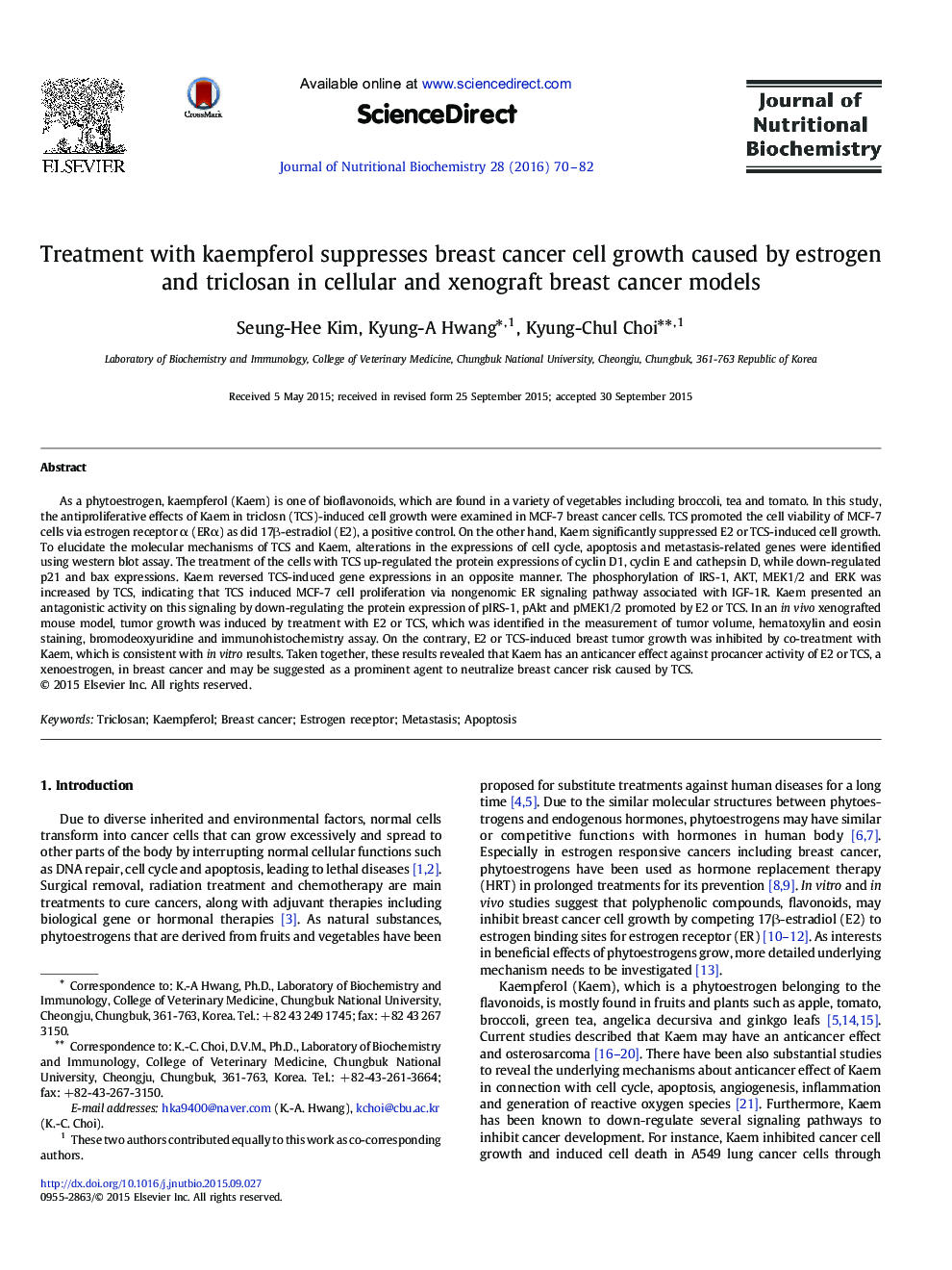| کد مقاله | کد نشریه | سال انتشار | مقاله انگلیسی | نسخه تمام متن |
|---|---|---|---|---|
| 1989602 | 1540640 | 2016 | 13 صفحه PDF | دانلود رایگان |
As a phytoestrogen, kaempferol (Kaem) is one of bioflavonoids, which are found in a variety of vegetables including broccoli, tea and tomato. In this study, the antiproliferative effects of Kaem in triclosn (TCS)-induced cell growth were examined in MCF-7 breast cancer cells. TCS promoted the cell viability of MCF-7 cells via estrogen receptor α (ERα) as did 17β-estradiol (E2), a positive control. On the other hand, Kaem significantly suppressed E2 or TCS-induced cell growth. To elucidate the molecular mechanisms of TCS and Kaem, alterations in the expressions of cell cycle, apoptosis and metastasis-related genes were identified using western blot assay. The treatment of the cells with TCS up-regulated the protein expressions of cyclin D1, cyclin E and cathepsin D, while down-regulated p21 and bax expressions. Kaem reversed TCS-induced gene expressions in an opposite manner. The phosphorylation of IRS-1, AKT, MEK1/2 and ERK was increased by TCS, indicating that TCS induced MCF-7 cell proliferation via nongenomic ER signaling pathway associated with IGF-1R. Kaem presented an antagonistic activity on this signaling by down-regulating the protein expression of pIRS-1, pAkt and pMEK1/2 promoted by E2 or TCS. In an in vivo xenografted mouse model, tumor growth was induced by treatment with E2 or TCS, which was identified in the measurement of tumor volume, hematoxylin and eosin staining, bromodeoxyuridine and immunohistochemistry assay. On the contrary, E2 or TCS-induced breast tumor growth was inhibited by co-treatment with Kaem, which is consistent with in vitro results. Taken together, these results revealed that Kaem has an anticancer effect against procancer activity of E2 or TCS, a xenoestrogen, in breast cancer and may be suggested as a prominent agent to neutralize breast cancer risk caused by TCS.
Journal: The Journal of Nutritional Biochemistry - Volume 28, February 2016, Pages 70–82
